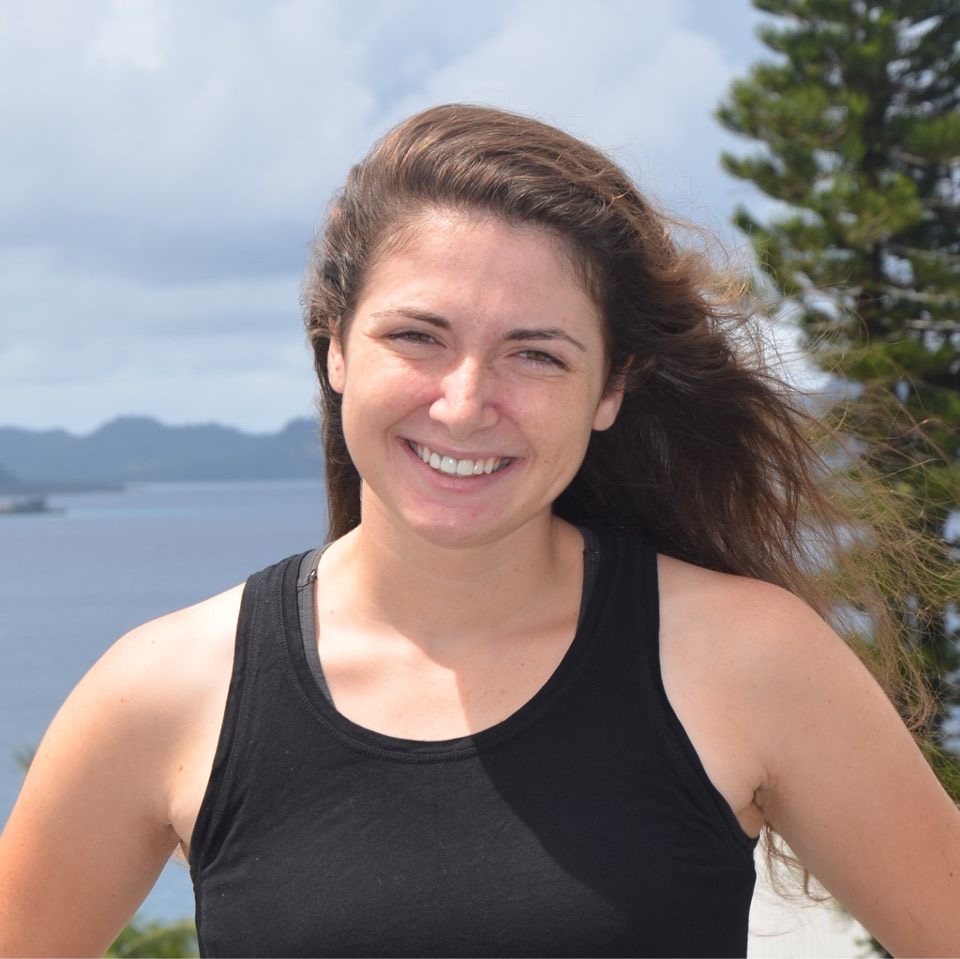Shannon Marcoux recently graduated from Columbia Law School in New York, where her advocacy has been focused primarily at the intersection of human rights and the environment. She will be heading to Cape Town, South Africa for a fellowship with Natural Justice, an environmental justice and human rights organization. There, she will be contributing to the organization’s environmental justice litigation and community legal empowerment efforts. After that fellowship, she hopes to continue working on community-centered climate litigation efforts and pushing for inclusion of grassroots advocacy priorities in climate policy initiatives.
Prior to law school, Shannon taught for two years in Chuuk, Micronesia. Living in the Micronesian region sparked her passion for advocacy related to decolonization, demilitarization, and climate justice. She has carried that passion into her scholarship, which has focused on the environmental justice implications of U.S. military activity in the Marshall Islands.

Similarly at the intersection of climate change, imperialism, and militarization, Shannon is currently exploring the ways in which state actors weaponize climate change impacts in occupied areas, including the occupied Palestinian Territories, Indian-occupied Kashmir, and U.S. military-occupied islands in the Marshall Islands.
In her free time, she loves traveling and spending time outdoors–whether it’s diving the shipwrecks in Chuuk Lagoon, trying (and failing) to surf in Cape Town, or just finding reprieve in Central Park in New York.
What do you do at ICAAD?
I joined ICAAD as an advisor in 2020, and my work has primarily supported ICAAD’s advocacy related to the Compact of Free Association (COFA). Prior to law school, I lived and worked in the Federated States of Micronesia, one of the three Freely Associated States, so issues related to COFA, the Pacific, and nuclear justice are near and dear to me.
What motivates your advocacy efforts?
It is difficult to pinpoint a single source of motivation! There are so many human rights issues requiring innovative advocacy efforts right now, so I think that it is the constant search for more creative and more effective advocacy to address even a few of these many issues that motivates me. I have also been incredibly lucky as an advocate to have worked directly with adversely impacted individuals and communities, and their motivation to fight injustice in the face of extreme adversity motivates me to support their advocacy however I can.
Who or what inspires you?
This feels odd to say as someone who is quite young myself, but young people inspire me. When I was a teacher, my Micronesian students were the fiercest and most effective climate justice advocates I had ever met, and they inspired me to take up this work. Young people are so often on the right side of history, yet their voices are usually excluded from important policy conversations. The increasingly powerful voices of young activists in the climate justice movement, and in many other human rights movements globally, inspire me to be a bolder and more dedicated advocate.
What is an important lesson that you’d like to share with other human rights advocates?
The key lesson that guides my work as an advocate is to only go where I am wanted. Human rights advocates who are outsiders to a region or a cause and force their own agenda on a community often do far more harm than good. Communities facing injustice know their grievances and their goals far better than I ever could, so their voices should be at the center of advocacy efforts.
